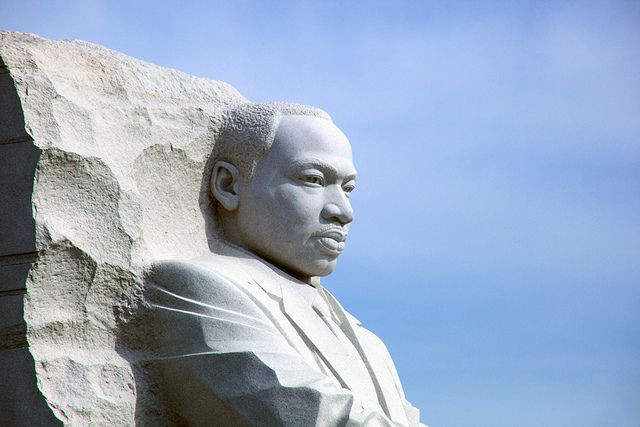Martin Luther King Jr. Day 2014: Quotes On Racism From Leading Studies Show Discrimination’s Long-Lasting Effects

As we approach Dr. Martin Luther King Jr. Day 2014, it’s inevitable to reflect on the progress America has made toward racial harmony. Since King’s death in 1968 — and even for some time before — researchers have tried to get to the psychological root of racism. And while the cause of racism is still pretty much up in the air, psychologists have uncovered some interesting theories surrounding its construction. Below are excerpts from Medical Daily’s coverage of how victims of discrimination suffer long-lasting effects:
Can Racism Make You Age Faster? Discrimination Found To Accelerate Telomere Shortening In Black Men
Jan. 2014
Black men who have faced discrimination because of their race and who have since adopted certain anti-black ideas themselves may face an accelerated form of aging, according to a new study.
Cellular aging is thought to be the result of numerous factors, but one biomarker — known as telomere shortening — has been revered as the most accurate. Researchers from the University of Maryland, College Park, used the indicator as a basis for their analysis of the effects of lifelong racism and discrimination. They found the men who had been profiled and harassed, in both the workplace and in public, showed more advanced signs of telomere shortening than men who had faced less racism, and interestingly, than men who didn’t hold racist beliefs themselves.
Racism In White Americans Linked To Gun Ownership And Gun Control Opposition
Oct. 2013
A new study of symbolic racism among white American voters yielded strong links between latent biases toward blacks and increased favor of gun ownership and oppositions toward gun control.
“For example, U.S. whites oppose gun control to a far greater extent than do blacks, but whites are actually more likely to kill themselves with their guns, than be killed by someone else,” co-author of the study, Dr. Kerry O’Brien, said. “Why would you keep them? So we decided to examine what social and psychological factors predict gun ownership and opposition to gun control."
Racism Can Cause PTSD Similar To That Of Soldiers After War
May 2013
Dr. Monica T. Williams suggests that proposed changes in the criteria for post-traumatic stress disorder (PTSD) in the fifth edition of the Diagnostic Manual of Mental Disorders (DSM-5) could increase the potential for better recognition of race-based trauma in racial and ethnic minorities.
In a recent article in Psychology Today, Williams, who is a clinical psychologist and the associate director of the University of Louisville's Center for Mental Health Disparities, said that before the release of the DSM-5 Thursday, racism was recognized as a trauma that could potentially cause PTSD, but only in relation to a specific event. There had to be an incident of intense fear, helplessness, or horror for such consideration. For instance, if someone was assaulted in a racially-motivated event, then racism qualified as a sufficient trauma to be categorized as a cause of PTSD.
But now, under the new definition, the requirements for fear, helplessness, and horror have been removed, making room for the more lasting effects of subtle racism to be considered in the discussion of race-based traumas.
African-Americans Who Play ‘The Race Card’ Have Higher Blood Pressure: Does Obsessing Over Race Lead To Bad Health?
Aug. 2013
"African-Americans have higher blood pressure, and it has been difficult to explain why this is true,” said Dr. Lisa Cooper, senior author of the study and professor of internal medicine at Johns Hopkins University.“It doesn't appear to be genetic, and while things like diet, exercise, and reduced access to health care may contribute, we think that a tense social environment, the sense of being treated differently because of your race, could also possibly explain some of what's behind the higher rates.”
Blacks who thought about racial issues on a consistent basis — whether it was once a week, once a month, or once a year — had significantly higher blood pressure than blacks who didn’t. This pattern was not observed between whites who were race-conscious and those who weren’t.
"A preoccupation with race among blacks leads to hyper-vigilance, a heightened awareness of their stigmatized status in society and a feeling that they need to watch their backs constantly," said Cooper. "We need to help people of all races cope with race-related stress in a healthier way."



























